By AmilcarRyumeko*
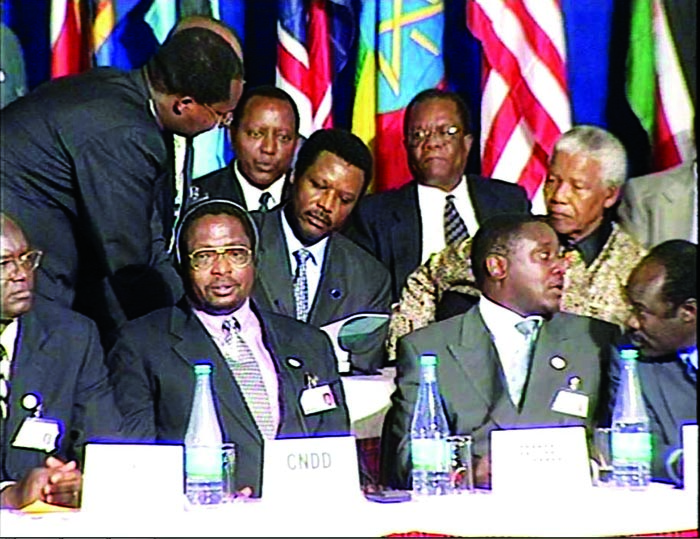
Arusha accord signature
Since end of April 2015, Burundi has plunged into a violent political crisis. The trigger: the candidacy of President Pierre Nkurunziza for a third term in office. The candidacy was contrary to both the spirit and provisions of one of Nelson Mandela’s legacies to Africa, the 2000 Arusha Peace and Reconciliation Agreement, and to the constitution of Burundi. Based on various reports of the United Nations High Commissioner of Human Rights ZeidRa’ad Al Hussein products sinceApril 26, 2015 there are more than 270,000 Burundian refugees and hundreds of Burundians killed, not to mention numerous cases of abductions, torture, rape and arbitrary imprisonment. More worrying, there are increasingly inflammatory speeches from the ruling that can lead Burundi to the worst if there is no action taken from International community, especially the East African community (EAC).
As pointed out by the office of the United NationsSpecial Adviser on the Prevention of Genocide, “inflammatory speech often precedes mass atrocities and it is part of the social process that makes those crimes possible, as demonstrated by Radio RTLM in the Rwanda genocide”. In facts, inflammatory rhetoric is one among many circumstances that facilitate perpetration of mass atrocity such as crimes against humanity or genocide.In a very tense environment like the one in which Burundi is, inflammatory speeches from authorities, like the one from Senate president when he told local administrators to be ready and set their emotions aside if a signal is given to the police to “go to work”, can lead the country into the abyss. Another example is the statement published on 16 august 2016 from Pascal Nyabenda, who was at the time President of the CNDD-FDD (ruling party) and President of the National Assembly where he used words that have the potential to inflame ethnic tensions both within Burundi and the region.In addition, recently, the U.N. Committee against Torture expressed concern at the use of “genocidal rhetoric” by senior officials.As a reminder, on November 9th 2015 at the 7553rd meeting of the UN Security Council, the Secretary-General for Political Affairs denounced the “inflammatory” statements of certain authorities, including the President of the Senate and President Nkurunziza, that “an ethnic dimension,” contrary to the spirit of the Arusha Agreement had yet ended the civil war in Burundi.AdamaDieng added that “no one should underestimate what was at stake, as history in the region had shown the consequences of failing to act when leaders incited violence”.
In certain context, inflammatory speech can serve as catalyst of mass atrocities crimes. As pointed out in the report The Role of Speech in Violent Conflicts from a a two-day seminar organized by the United States Holocaust Memorial Museum to examine the role speech acts play in genocide and related crimes against humanity, “The context in which speech occurs helps determine its impact, as does the position of the person or persons speaking. Additionally, hate speech alone does not indicate impending violence. It is only by analyzing contextual clues that the potential threat of any given speech can be evaluated”. The report adds that the local environment in which the speech is taking place is important: “Hate speech, propaganda, and incitement often rely on symbolism, vernacular, and coded language deeply rooted in a historical and cultural context specific to the region.” This can explain the statement on the situation in Burundi made by the United Nations Special Adviser on the Prevention of Genocide, AdamaDieng, in which he expressed“his concern at inflammatory statements by public officials that could constitute incitement to violence including, most recently, by a senior official of the ruling CNDD-FDD political party.”
In a context of growing and continuous inflammatory speeches from the ruling party, the EAC should intervene and take concrete action to avoid the worst that is around the corner.In light of the specific context of the region in which those inflammatory speeches are diffused and in order to avoid other mass atrocity crimes in the region, I strongly think that the time for addressing the Burundi crisis only through meetings and statements is over. The EAC must now transition to practical action.
First, in the spirit of the Responsibility to Protect in U.N. Security Council Resolution 1674 on the protection of civilians in armed conflict, EAC should push the African Union in order to deploy forces to protect the civilian population. The Burundian government has already proven itself unwilling to prevent or stop the massacres and serious violations of humanitarian law against its citizens. Second, the EAC should impose economic sanctions on the Burundi government to force them to participate in an inclusive dialogue with all stakeholders (armed and non-armed) without any conditions.Third, the EAC should impose targeted sanctions, such as travel bans and asset freezes, against all Burundian leaders whose actions and words contribute to the persistence of violence and hinder the search for a solution. Last but not least, any action from the EAC that does not privilege a return to institutions reflecting the 2000 Arusha Peace and Reconciliation Agreement or take into account the illegal and the illegitimate Nkurunziza’s third term and repression campaign as the source of the current political crisis would be a disservice to both Burundi and region peace and security.
____________
*“Amilcar Ryumeko graduated with a degree in political science from the University of Sherbrooke. He worked as political adviser to the parliamentary assistant to the premier of Quebec in charge of economic issues. He now works as a public servant in the gouvermnent of Québec.”

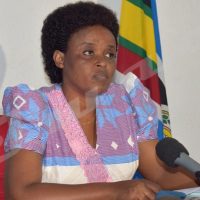
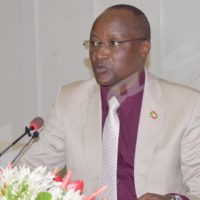
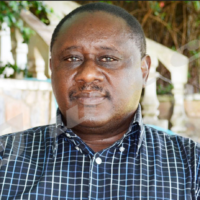
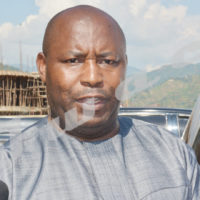
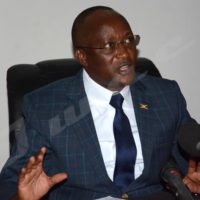













 IWACU Open Data
IWACU Open Data

